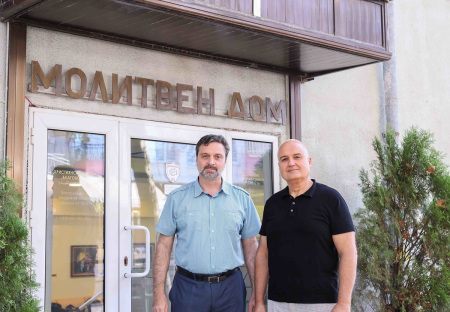Pastors challenge gov’t officials’ 'scaremongering campaign' against Evangelical Christians

Two evangelical pastors in Bulgaria have appealed to the European Court of Human Rights to order a Bulgarian city to end its "scaremongering campaign" against non-Eastern Orthodox Christians after city officials and police sent a letter to all school administrators instructing faculty to “inform” children of the danger evangelical Christians pose.
The pastors, Zhivko Tochev and Radoslav Kiryakov, filed a brief with Europe’s top court earlier this month, responding to the arguments of the Balkan nation’s government in defense of its letter, which was sent by the City Council of Burgas, together with the police, to school administrators in 2008.
In the letter sent by officials with the city of Burgas, all non-Eastern Orthodox Christians were labeled as being part of sects.
Officials also accused Protestants of “carrying out a massive campaign of agitation … tricking new members … disuniting the Bulgarian nation,” said the human rights group Alliance Defending Freedom International, which is representing the pastors.
The letter also alleged that there was a danger of suffering “mental aberrations and disorders” when attending Protestant church services. The students in the class were asked to report if they had ever met someone from one of the named groups. The government also provided material to the press to generate coverage on what was referred to as its “War on the Sects.”
“When we read the letter, we were shocked because after the fall of communism, we thought that we would be able to share the Gospel freely,” Pastor Kiryakov was quoted as saying. “At the same time, the media also started to say that we are dangerous cults and sectarians, and that people should be very careful.”
ADF International’s allied lawyer Viktor Kostov said religious beliefs are part of the dignity of human beings and have to be respected.
“The actions of the government in this case were reckless and they caused significant damage to the ability of the pastors that I represent, Tonchev and Kiryakov, to exercise their religious rights,” he said. “They also caused damage to all other congregations and, in a larger context, to all believers in the city and in the country.”
In 2018, Christian leaders in Bulgaria sounded an alarm about two proposed draft laws that were being advanced in the country’s parliament at the time that would revise the country’s Religious Denominations Act.
The amendments would hold that Bulgarian citizens may only carry out liturgical activities if they have completed theological education in Bulgaria or have a foreign diploma recognized by Bulgarian government institutions and state-sanctioned denominations.
The New York-based World Evangelical Alliance, which serves an international network of churches in 129 nations, voiced concern with the draft laws, stressing that they threaten “to force evangelical churches and institutions to close or face unbearable and discriminatory administrative burdens” and “has implications on the funding and financial management of religious communities as well as on the training and appointing of clergy.”





















